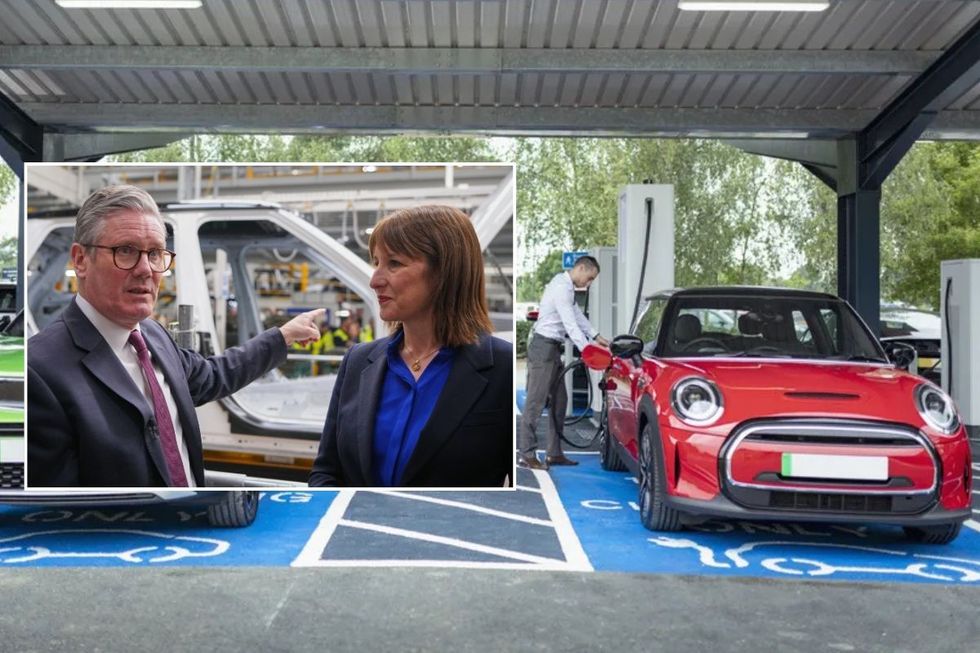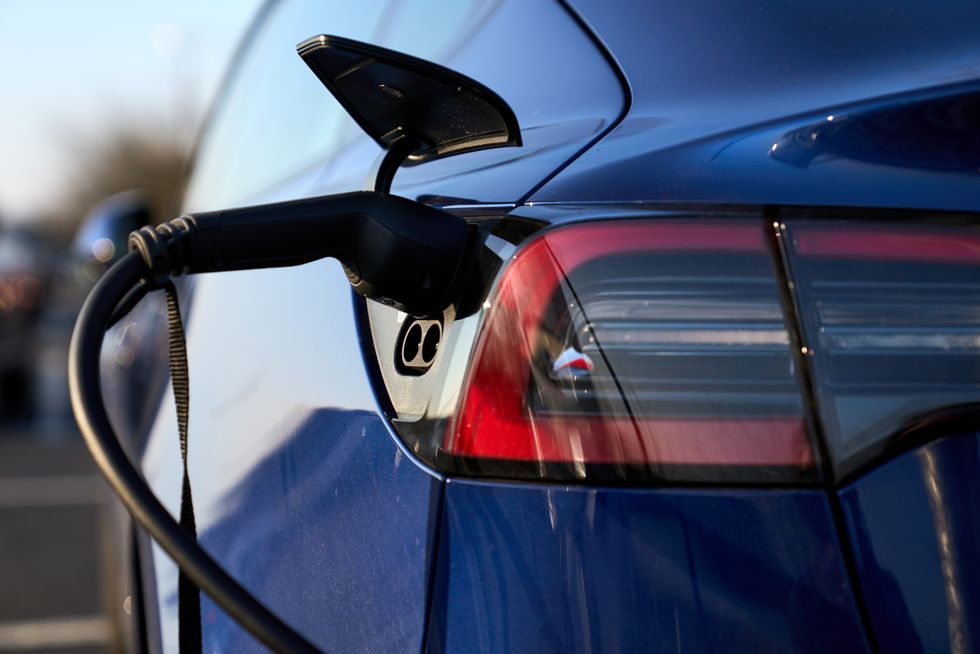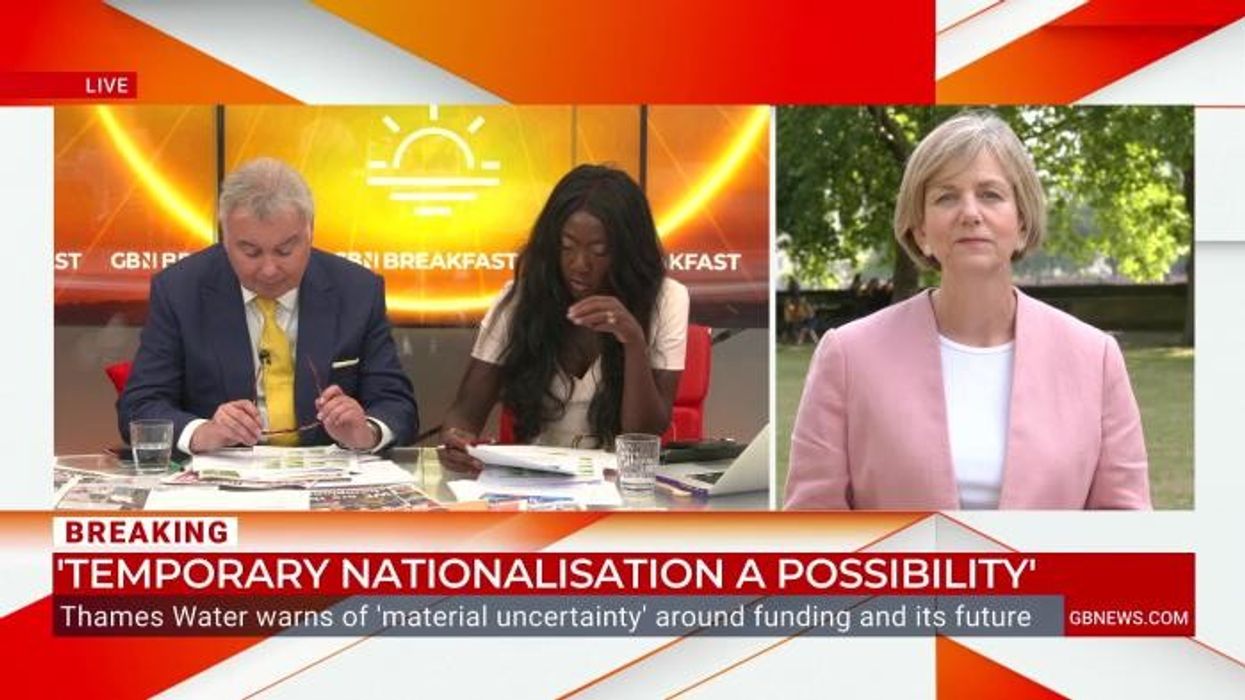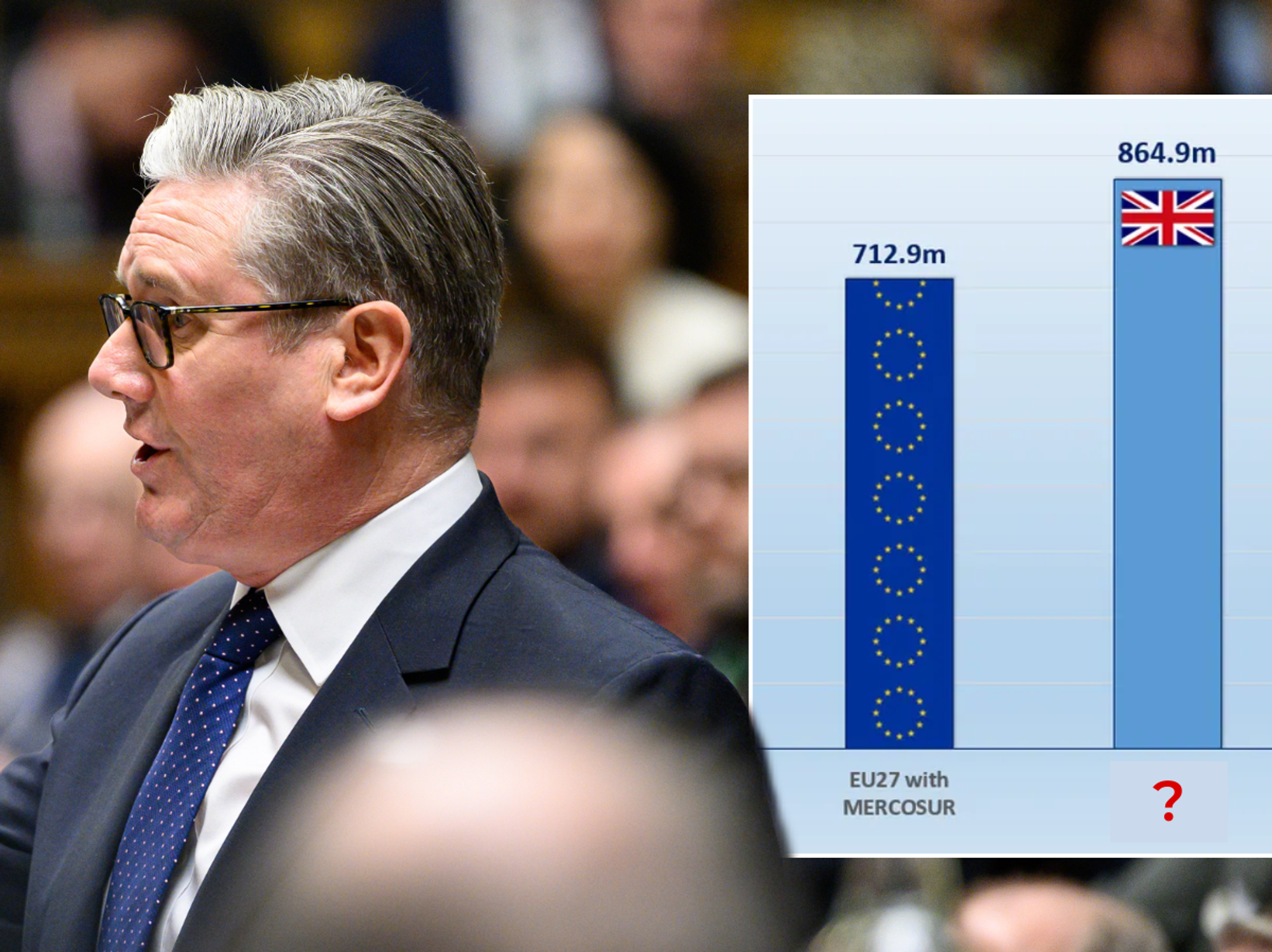Labour urged to launch new measures to remove electric car 'barrier' impacting millions of drivers

Around £6billion has been pledged to facilitate the rollout of electric vehicle chargers
Don't Miss
Most Read
The electric vehicle industry has called on the Government to make several key changes to its EV approach to ensure drivers have the confidence to switch and that net zero targets can be met.
Fresh data from ChargeUK has shown that chargepoint operators around the UK have seen a staggering increase of up to 79 per cent in their energy bills over the last four years.
This has led to drivers facing the brunt of the price increases. Experts have warned that this cost pressure could be enough to deter drivers from investing in an EV if they don't have a non-public way of charging.
The report, entitled "Delivering Affordable Charging for All", reported that chargepoint operators were seeing the standard charge element of their bills rising by as much as 462 per cent.
Do you have a story you'd like to share? Get in touch by emailing motoring@gbnews.uk
TRENDING
Stories
Videos
Your Say
It also pointed out that drivers were facing additional burdens when charging in public, with a VAT rate of 20 per cent, compared to just five per cent when charging at home.
ChargeUK has called on the Government to implement measures to mitigate the impact of the costs of chargepoint operators and electric car drivers.
Vicky Read, CEO of ChargeUK, said Labour "needs to take action" to tackle energy costs, address the VAT disparity and upgrade the fuel credit scheme.
She added: "The EV transition is well underway, with a quarter of all new cars sold an EV, and the public charging network hitting 85,000 charge points this month.

Labour is being urged to introduce changes to electric vehicle charging to ensure drivers and companies avoid high costs
|GETTY
"Most drivers can already charge affordably, and the charging sector is innovating to offer additional ways to access cost-effective options."
Labour is being urged to accelerate existing regulatory reforms to lower the high cost of standing charges and extend policy levy exemptions to the charging sector.
More than £6billion has been earmarked by the charging industry to grow the public network by around 30 per cent a year, with many still hoping that the UK will have 300,000 public chargers by the end of the decade.
ChargeUK also called for electric vehicle charging to be added to the existing Renewable Transport Fuel Obligation scheme.
LATEST DEVELOPMENTS:
It argued that this would allow chargepoint operators to keep consumer prices competitive and support deployment, while costing the Government nothing.
Data from ChargeUK and Cornwall Insight highlighted how bringing down the VAT rate on public chargers to five per cent would save drivers who cannot charge at home an extra £145 a year.
Jacob Briggs, a senior consultant at Cornwall Insight, described the charging network as a "real success story" but warned that public charging prices could "slow progress towards an EV-driven future".
"Unless these cost pressures are tackled by Government, we risk turning a good news story into a barrier for millions of drivers who want to go electric," Mr Briggs added.

There are more than 85,000 public electric vehicle chargers around the UK
| PAIt is hoped that Labour's £650million Electric Car Grant will accelerate the uptake of new EVs on the road, with drivers being able to save £1,500 or £3,750 off the price of a new zero emission vehicle.
It also coincides with September historically being one of the best-selling months for new vehicles, as drivers look to get their hands on the new "75" plate.
Commenting on the report, EVA England CEO Vicky Edmonds said: "With three out of four drivers believing that high public charging costs are a key barrier preventing more people from switching to electric, understanding what drives these costs is essential.
"It is clear that EV charging has not been central enough to decisions around electricity market policy and regulation. If we are to make public charging more affordable, it must be a focus for future decision making."











